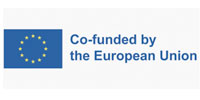Knowledge and Critical Understanding of History – A Key Competence for Democratic Culture

Abstract
The aim of this project is to support schools in creating a culture of democracy in which students learn about the past and act in order to prevent history from repeating.
The project was co-funded by the European Union through the CERV programme by TOLI – The Olga Lengyel Institute for Holocaust Studies and Human Rights, and by the Catholic University of Valencia San Vicente Martir and implemented between April 1st 2022 – March 31st 2024. In the framework of the project there were two events organized in Spain:
The national seminar for teachers in Croatia was organized in Zagreb from 17 to 21 November 2022. A report of the event is available here.
The national seminar for teachers in Lithuania was organized in Vilnius from 19 to 23 June 2023. A report of the event is available here.
The national seminar for teachers in Spain was organized in Valencia from 3 to 7 July 2023. A report of the event is available here.
The international seminar for teachers was organized in Valencia from 15 to 17 December 2023. A report of the event is available here.
Teachers from several European countries were involved in a process aiming at developing their competences to teach about the Holocaust through intercultural and human right approach and contribute to the development of active citizenship.
The Reference Framework of Competences for Democratic Culture, published by the Council of Europe in 2018 was conceptual framework for the training and the methodology. Teachers learned about Holocaust and other genocides through the lens of human rights , Intercultural education and the development of democratic. The emphasis in the project was on learn about present day discrimination and injustice through the lens of human rights. In order to address successfully present challenges in school environment
A number of 120 direct beneficiaries were involved in the project – mainly secondary school teachers –
The main activities of the project included: national seminars in Lithuania, Spain and Croatia, follow-up projects carried out by participating teachers with students and members of the local community and an international conference with teachers, organisations and institutions from 8 European countries.
The teachers involved in the project develop their competences to teach about the past in a respectful way towards victims of atrocities and to guide their students to learn from the past and stand up for victims of human rights abuses, intolerance and injustice today. The project assessment demonstrate to have been empowering teachers and provide them with tools to empower students to become active European citizens who think critically and deconstruct propaganda and manipulation attempts.
The project partners were
- Catholic University of Valencia, Spain (coordinator);
- Intercultural Institute Timisoara, Romania;
- Documenta, Croatia;
- The Secretariat of the International Commission for the Evaluation of the Crimes of the Nazi and Soviet Occupation Regimes in Lithuania.
Publication of educational support material Learning from the Past acting for the future